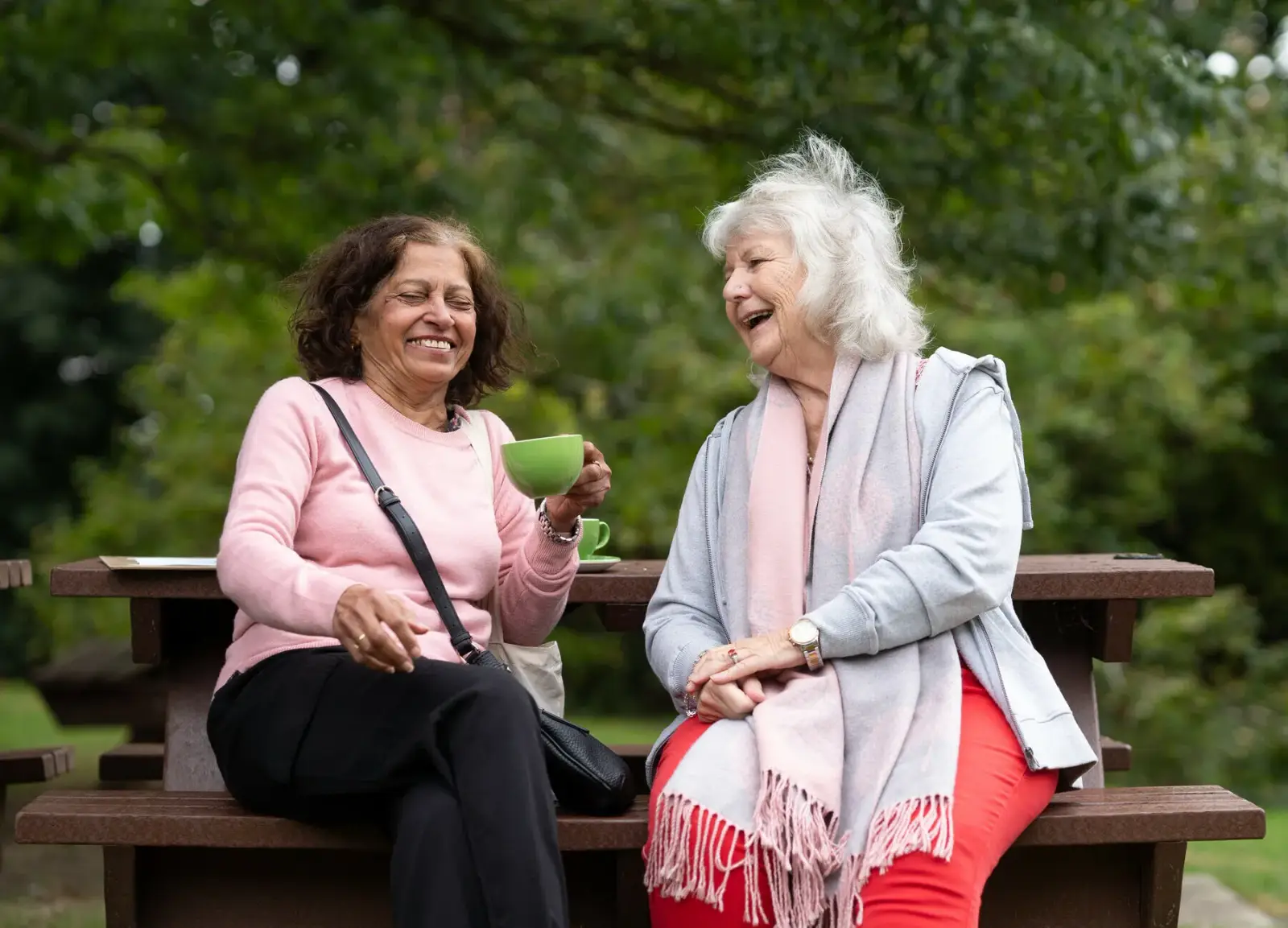Personal care for the elderly
Personal care involves providing hands-on support for daily living tasks, helping your loved one maintain their independence and dignity. Find out how our carers can help today.
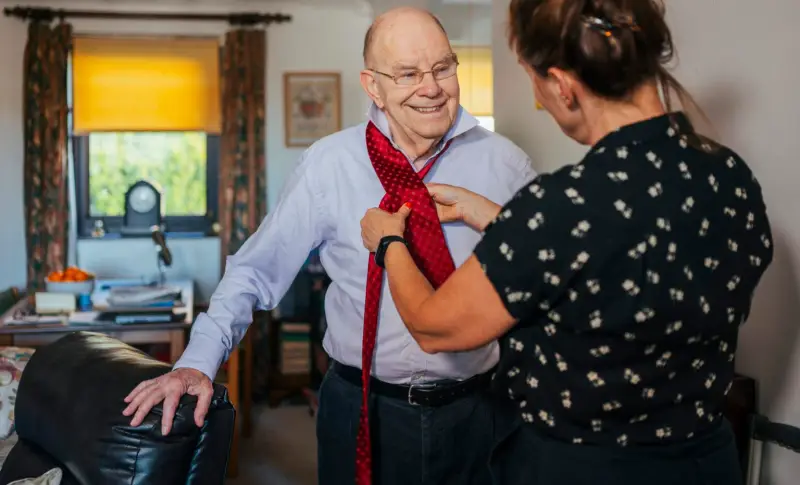
6,000+ Carers
Select from over 6,000 qualified carers
Fast matching
Care can begin in as little as 24 hours
Across Great Britain
We have organised care in every GB postcode
Cost efficient
Costs on average 35% less than traditional services
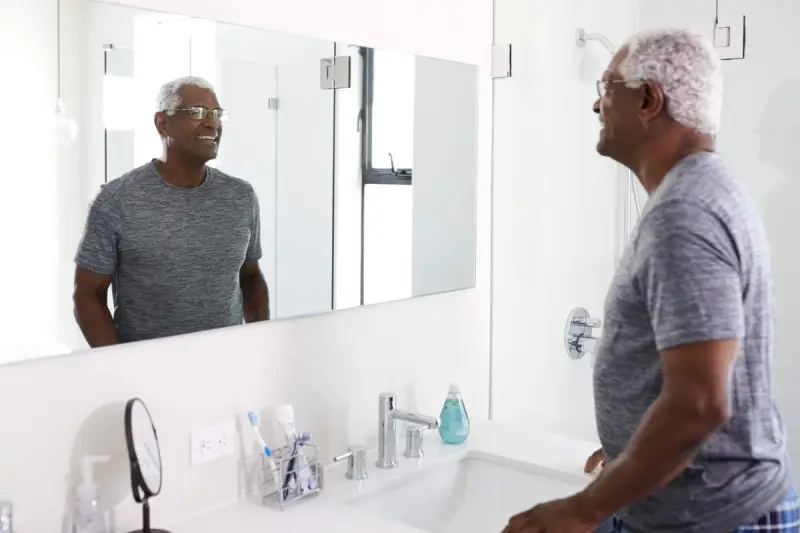
What is personal care?
Personal care involves helping with daily tasks and personal hygiene that are essential for well-being. The goal is to preserve dignity and independence, ensuring that support is only offered where it is needed and delivered in a way that is comfortable for the person receiving care.
While definitions can vary, personal care services typically include:
- Help with washing and showering: Assisting with getting in and out of the bath or shower, providing bed baths, and ensuring safe water temperatures.
- Dressing and grooming: Help with getting dressed in clean, weather-appropriate clothing, hair care, shaving, and applying lotions.
- Oral hygiene: Assistance with brushing teeth and denture care.
- Mobility assistance: Encouraging gentle movement and helping with changing positions.
- Toileting and continence care: Assistance with using the toilet, changing continence pads, and managing toileting aids.
- Medication management: Providing reminders and ensuring medication is stored correctly.
- Meal preparation: Cooking nutritious meals and making snacks available.
When to consider personal care
It can be challenging to know when to seek help with personal care. Here are some common reasons and signs that a loved one may benefit from professional personal care services:
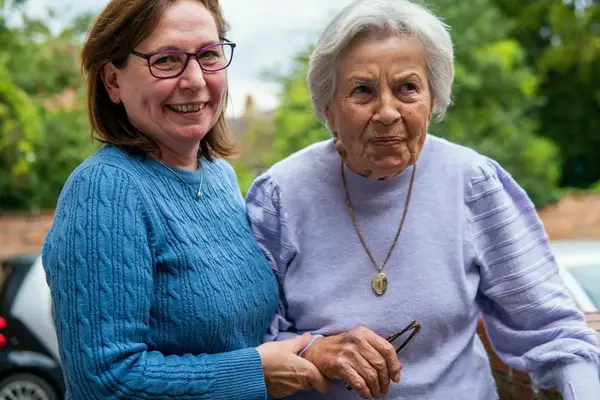
Age-related changes: Mobility issues, balance problems, or memory loss can make daily personal tasks difficult or unsafe.

Post-illness or surgery recovery: Temporary support is often needed for a loved one recovering from a health event.
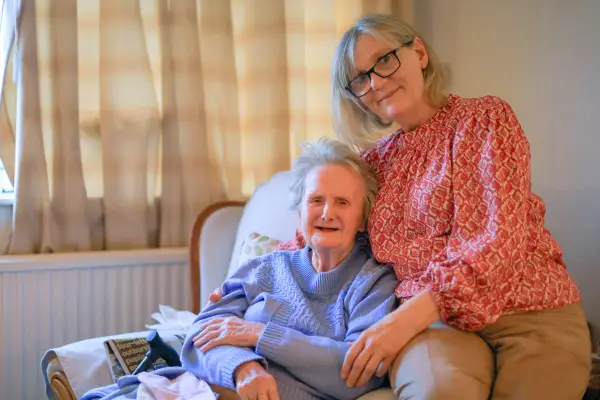
Relief for family carers: Having a professional take on intimate tasks can allow family members to focus on enjoying their time together.

Signs of decline: Look for signs such as wearing the same clothes, poor personal hygiene, untrimmed nails, or withdrawing from social activities.
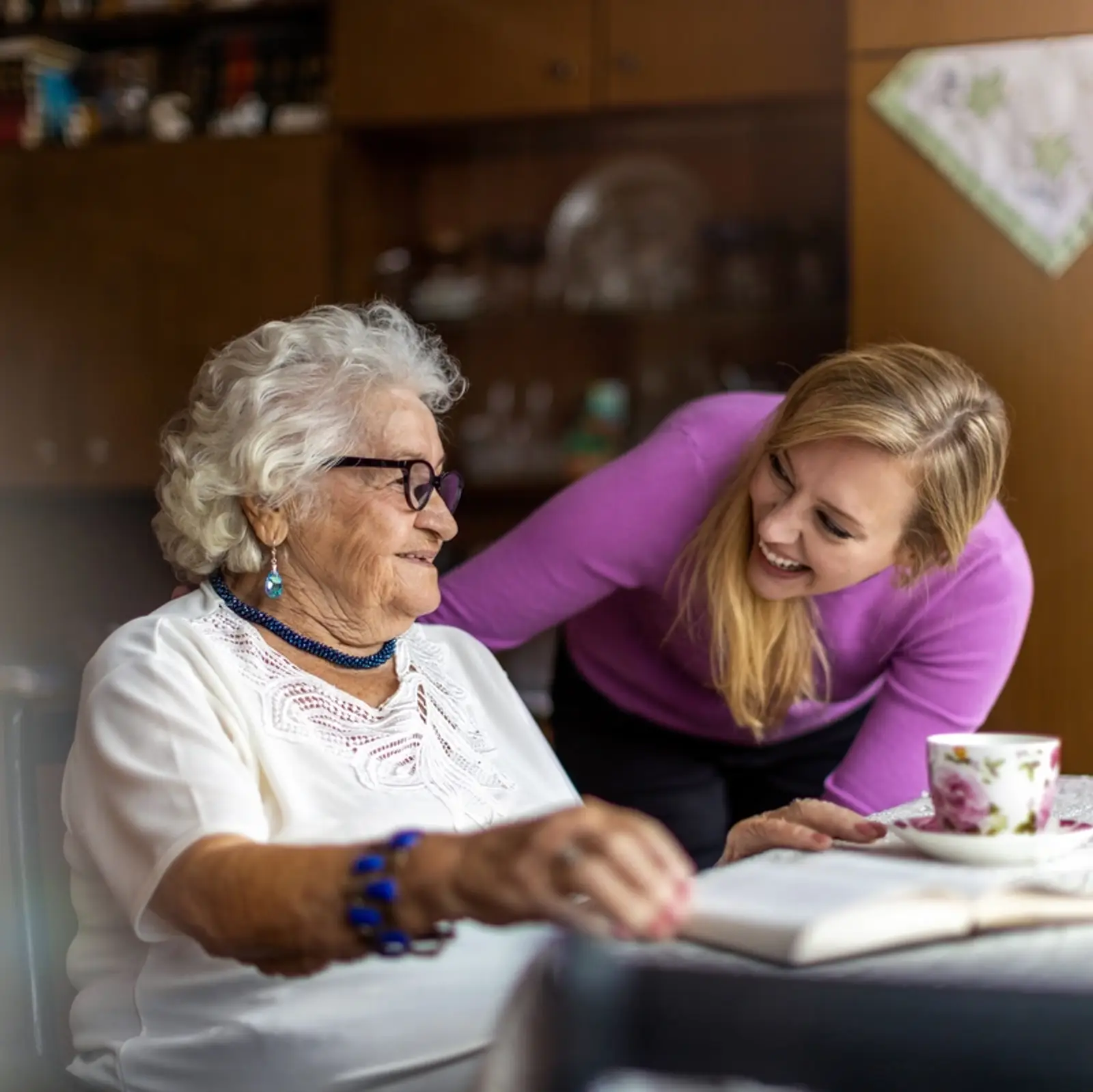
Personal care for someone living with dementia
Personal care can be particularly difficult for individuals living with dementia. Memory loss can lead to them forgetting to wash or how to perform certain tasks.
A consistent, professional carer can provide better continuity of care, building a trusting relationship and helping the individual maintain their routine and dignity. Our carers are fully trained to provide dementia care, including Alzheimer's care, and can offer simple prompts and gentle support, adapting as the person's needs change.
What are the benefits of personal care at home?
Personal care at home offers significant advantages for those who want to remain in their own environment.
Personal care options with Elder
With Elder, you have the choice of three types of care, depending on the level of support your loved one requires.
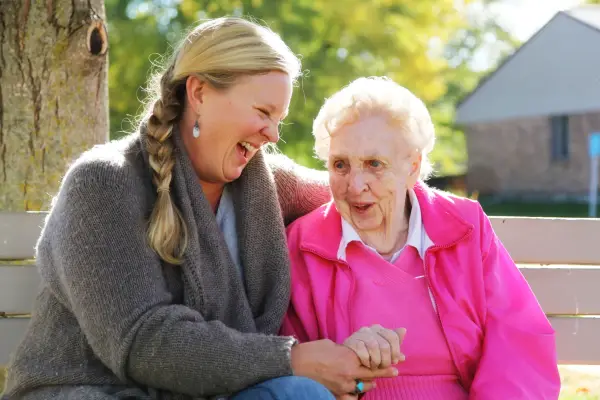
Live-in care
Long-term 24-hour support
- A carer lives in the home to provide round-the-clock support
- Suitable for people living with conditions like dementia, reduced mobility, etc.
- For long-term care needs
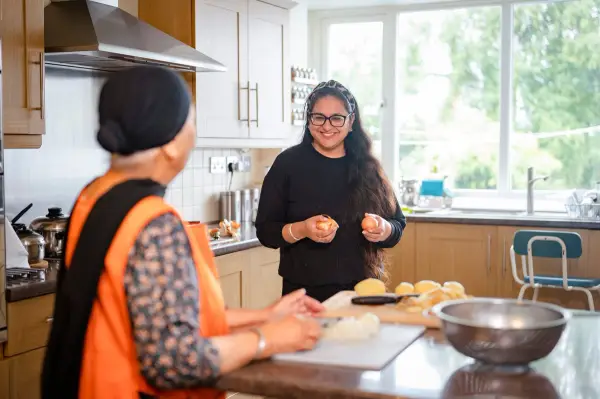
Respite care
Temporary 24-hour support
- A carer moves in for a few days to provide round-the-clock support
- Suitable to cover for a main caregiver or for a temporary increase in care needs
- Minimum duration of 3 days
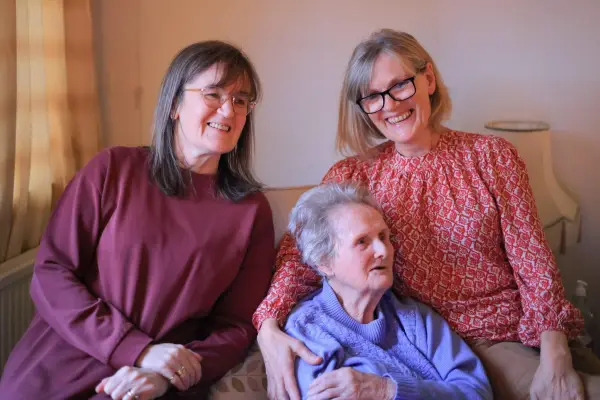
Visiting care
Flexible home visits
- Book as many hours as you need for help in the comfort of your home
- Support with everyday tasks like grooming, walks, cooking, etc.
- From as little as 1 hour per week
FAQs
Still have questions?
0333 920 3648Personal care is a broad term, but it typically includes assistance with tasks like:
- Washing and bathing: Help getting in and out of the shower or bath.
- Dressing: Assistance with getting dressed and undressed.
- Oral hygiene: Support with brushing teeth or denture care.
- Toileting: Discreet help with using the toilet or managing incontinence.
- Grooming: Assistance with hair care, shaving, and applying lotions.
- Mobility: Gentle support with moving around the home.
It's important to understand the difference between personal care and nurse-led tasks. The Care Quality Commission (CQC) defines personal care as a range of intimate tasks, while 'nursing care' refers to more complex medical tasks such as wound care, injections, or administering controlled drugs. Self-employed carers on the Elder platform are not expected to provide nursing care.
When looking for a professional carer, you should consider personality in addition to experience and training. A professional personal care assistant should be someone you or your loved one feels comfortable with and can trust. They should respect personal boundaries and work to support independence.
Yes, our carers are fully trained to provide compassionate support for people living with dementia. They understand that memory loss can make personal care confusing or stressful. Our carers use gentle encouragement and establish consistent routines to help your loved one feel at ease and maintain their dignity.
Your loved one can get free personal care from their local council if their care needs assessment shows that they need it. This support is available regardless of their age, financial situation, or relationship status.
Unlike in a residential care home, personal care at home allows your loved one to stay in the comfort and familiarity of their own home. It is a one-on-one service that is fully tailored to their specific needs and daily routine, giving them greater control and independence.

